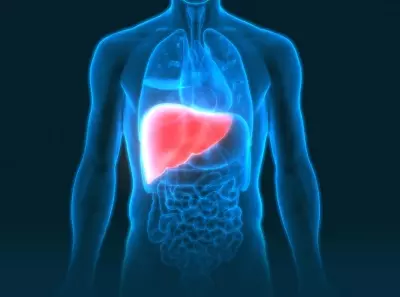
Gene therapy: Potential new treatment for liver cancer
text_fieldsNew York: A type of gene therapy may one day be used to treat people with hepatocellular carcinoma, the most prevalent type of liver cancer, and metabolic illnesses including diabetes, according to US experts.
Mice with hepatocellular cancer were successfully treated by the team led by the University of California-Davis using a gene therapy that causes the body to produce the naturally occurring molecule microRNA-22 (miR-22).
The miR-22 treatment also reduced liver inflammation and produced better survival outcomes with no observable toxicity compared to the US FDA-approved liver cancer treatment lenvatinib.
“This research introduces miR-22 gene therapy as a promising and innovative approach for treating hepatocellular carcinoma,” said Yu-Jui Yvonne Wan, Professor from the UC Davis Department of Pathology and Laboratory Medicine.
“The study's findings suggest that miR-22 therapy could provide better survival outcomes, enhance anti-tumour immunity, improve metabolism and reduce inflammation.”
In the study published in the journal Molecular Therapy, the researchers explained that the miR-22 acts like a brake, stopping the production of certain proteins, including cyclin A, protein deacetylases and hypoxia-inducible factor -- all that can fuel liver cancer growth.
Wan’s previous research shows that metabolites produced by the gut microbiome help create miR-22 and have anti-cancer benefits. These metabolites include retinoic acid, short-chain fatty acids, bile acids and vitamin D3.
When people have colon or liver cancer, signalling from these metabolites is reduced, which in turn reduces miR-22.
This was a clue for Wan that returning miR-22 to a higher level might act as a treatment for liver cancer.
For the study, Wan used an inactivated adenovirus and introduced miR-22 into mice with a single intravenous injection.
The mice treated with the gene therapy were compared with mice treated with the current US FDA-approved drug lenvatinib (administered orally once a day), untreated mice and healthy mice.
Both miR-22 and lenvatinib inhibited the progression of liver cancer compared to untreated mice. However, the miR-22-treated mice had longer survival times without toxicity compared with lenvatinib-treated mice.
MiR-22 and lenvatinib reduced serum alanine transaminase (ALT), aspartate aminotransferase (AST), and cholesterol levels, indicating improved liver function. MiR-22-treated mice showed no blood or organ toxicity.
At five weeks, untreated mice had enlarged livers, making up 33.5 per cent of their body weight. The treated mice had smaller, less diseased livers, with ratios of 10.9 per cent (miR-22) and 12.0 per cent (lenvatinib) of body weight.
The median survival rate was 46 days for the lenvatinib group and 50 days for the miR-22 group.
Two mice treated with miR-22 remained alive for 60 days. In contrast, the survival time for the untreated mice was about 40 days.
“The positive findings from this preclinical study give us hope that miR-22 could be a promising alternative to treat hepatocellular carcinoma,” Hu said.
With inputs from IANS























